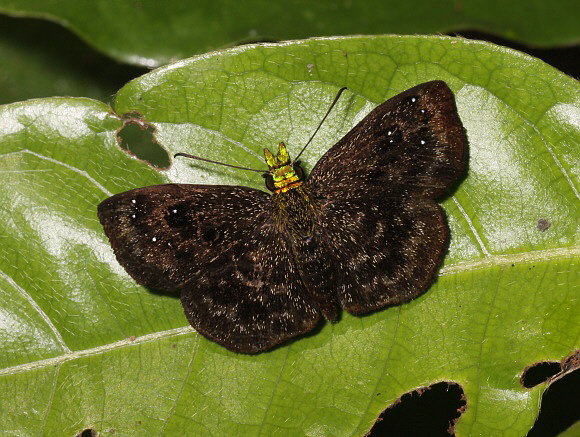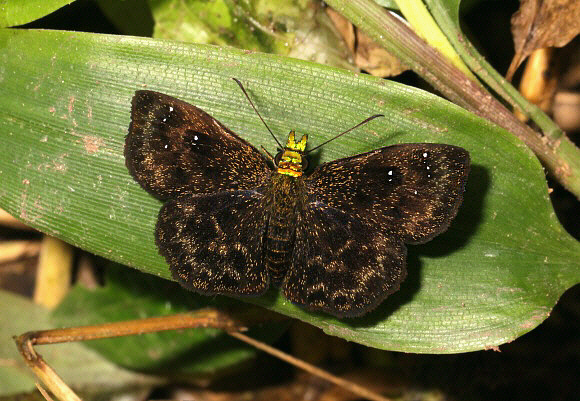
Introduction
The Pyrginae, popularly known as Flats or Spreadwings, are a cosmopolitan subfamily distributed across temperate and tropical habitats throughout the world. In the Americas there are 990 species.
About 580 species are placed within the tribe Pyrgini.
The genera Bolla and Staphylus include a combined total of 82 small dark species with an obscure pattern of lighter markings. Most members of both genera have a series of between 1 and 6 small white subapical spots on the forewings, and many are peppered with grey or yellowish scales. It is very difficult to distinguish between the genera, let alone to identify the species, but Staphylus tend to be smaller, the shape of their hindwings is a little wavier, and their heads and palpi are larger.
In some species including Bolla cupreiceps, Staphylus vulgata and S. ceos the head and palpi are covered in metallic golden or yellow scales. In Staphylus chlora the head, palpi and “collar” are bright green. When freshly emerged the wings are velvety black, but older specimens fade to dark brown, at which time the underlying markings become more apparent.
Staphylus chlora is found in Ecuador, Peru, Bolivia and the upper Amazon basin of Brazil.
Habitats
This species is found in disturbed rainforest and cloudforest habitats, including clearings, riverbanks and roadsides, at altitudes between about 200-1800m.
Lifecycle
The lifecycle is typical of the Pyrginae: The egg is dome-shaped with pronounced vertical ribbing, and is laid singly on the upper surface of the foodplants. It is yellowish when first laid, but turns orange within a day. The larva has a large dark brown head, and greenish translucent skin, which gradually changes to a pale, dirty olive-brown in the final instar. The larvae lives within a shelter made by folding a leaf, secured with strands of silk.
Adult behaviour
The butterflies are usually encountered in one’s and two’s, either when basking on low foliage, or when imbibing mineralised moisture from the edges of puddles or streams.

